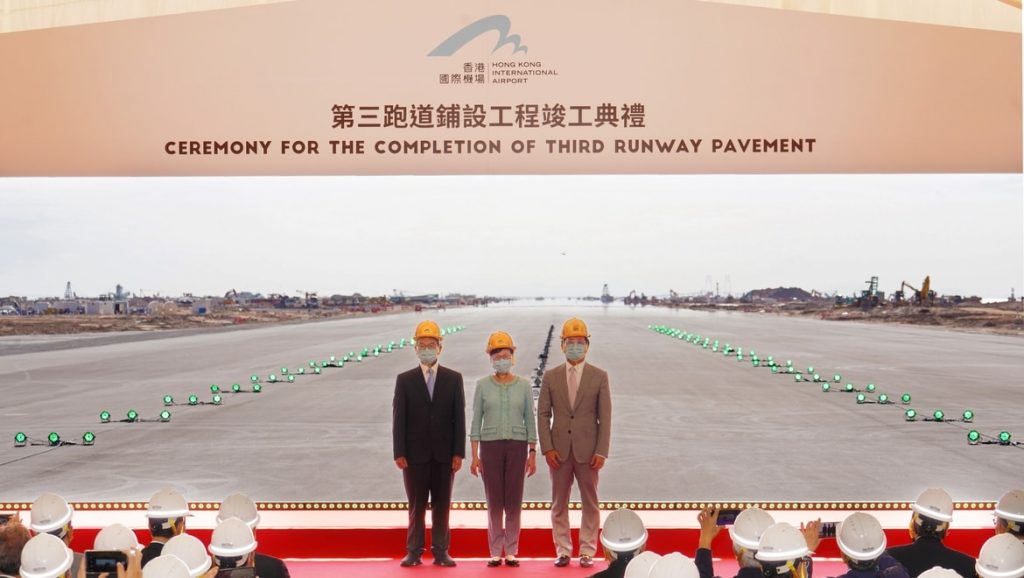
Hong Kong’s chief executive is “confident” the city will remain a leading international aviation hub despite reigning a zero-COVID strategy.
In her policy address to the Legislative Council on Wednesday, Carrie Lam announced several new strategies to sustain Hong Kong’s local aviation industry while preparing for the post-pandemic recovery.
“Although the global aviation industry, with Hong Kong being no exception, has been hard hit by the Covid-19 pandemic,” said Lam.
“I remain confident that our status as an international aviation hub could be consolidated and enhanced.”
The construction of the third runway at Hong Kong International Airport is almost developed, set to be commissioned next year and completed in 2024, according to Lam.
The project began in 2016 and is part of a larger US$18.2 billion mega-airport expansion.
The Airport Authority Hong Kong (AA) welcomed Lam’s support to “uphold” the nation as an international aviation hub.
“The AA continues to proactively push forward multiple plans related to the Airport City development, among which the pavement works of Three-runway System (3RS) project’s new runway has been completed.”
The runway will be 3.8 kilometres long, occupying around 650 hectares of land.
Secondly, Lam said the government is slated to establish a high-end aviation industrial cluster in Zhuhai, partnering with the Guangdong Province.
It will include aircraft maintenance engineering, manufacturing and distribution of aircraft, components, and research.
Zhunhai is part of the Greater Bay Area (GBA), along with eight other regions including Guangzhou, Shenzhen, Foshan, Huizhou, Dongguan, Zhongshan, Jiangmen and Zhaoqing in the Guangdong province.
CEO of Cathay Pacific – Hong Kong’s flag carrier – Augustus Tang said the city has an “unrivalled position” in the GBA and the aviation hub will allow for “easier access” to a broader number of customers.
“The expanded connectivity to and from the burgeoning Greater Bay Area directly from Hong Kong presents the city with enormous growth opportunities,” Tang added.
Hong Kong has kept a tight grip on international travel to maintain its zero-COVID strategy, especially to encourage vaccinations to eventually open borders.
Since April, the nation has maintained a steady seven-day average of under eight cases, and Lam said Hong Kong is “ready again for a new start” to re-establish its economy.
In early September, Hong Kong set its first ease of restrictions for people from mainland China to avoid strict quarantine upon arrival, after increasing pressure from struggling businesses.
Despite this, critics have said the government has prioritised mainland China over its international connections.
Earlier this week, Lam said opening to the mainland is “more important” than opening its international borders, implying strict quarantine will likely remain for a while longer with other countries.
“As long as we can resume border crossing without quarantine, we will do our best to satisfy whatever the central government asks us to do,” she added.




